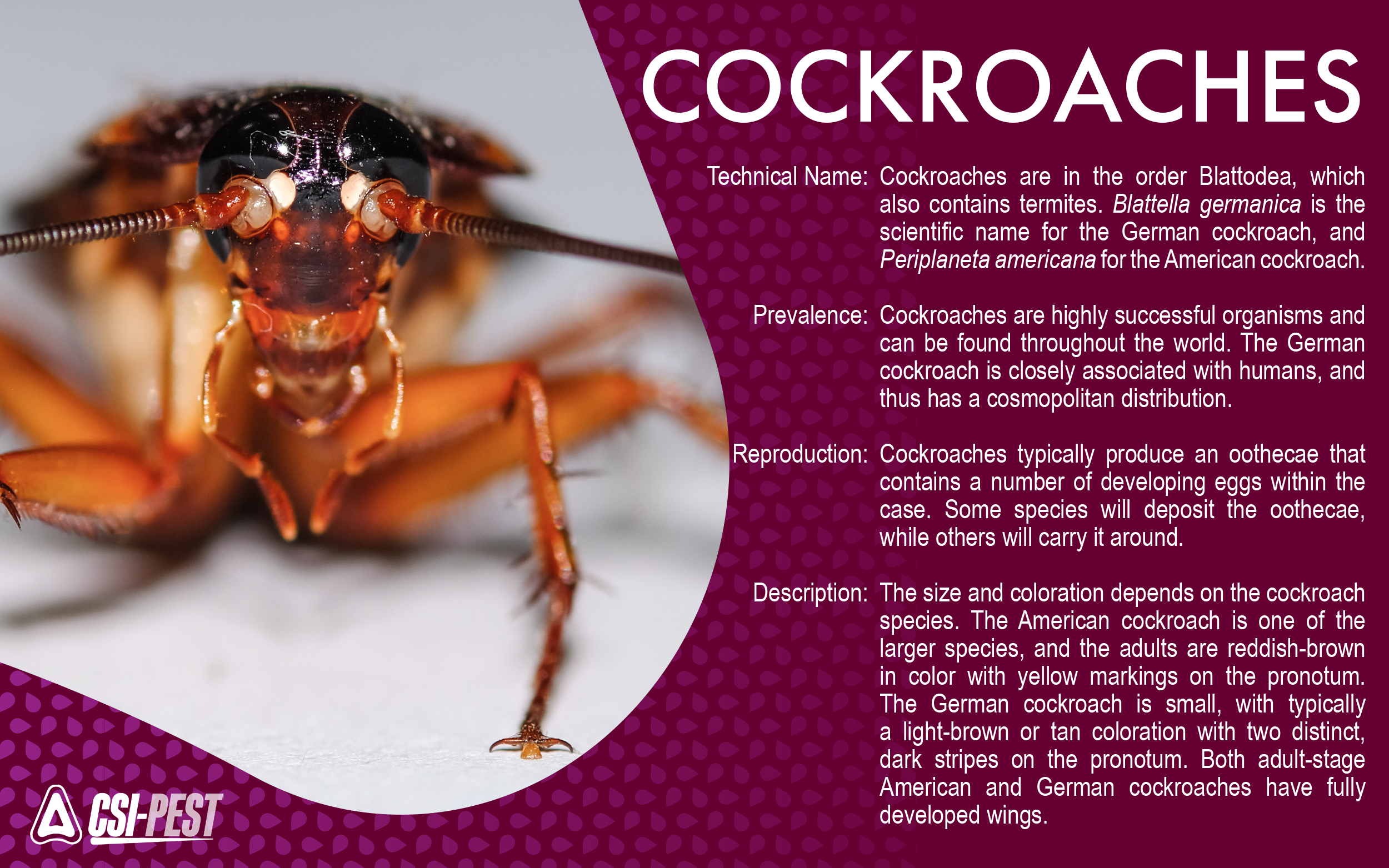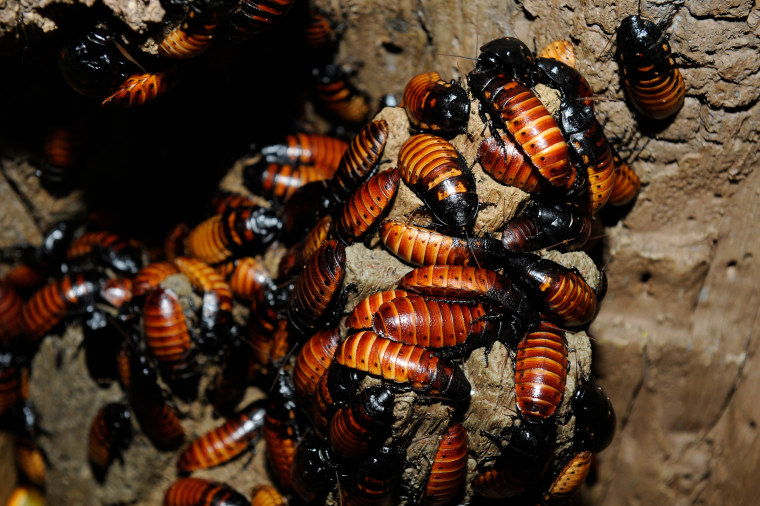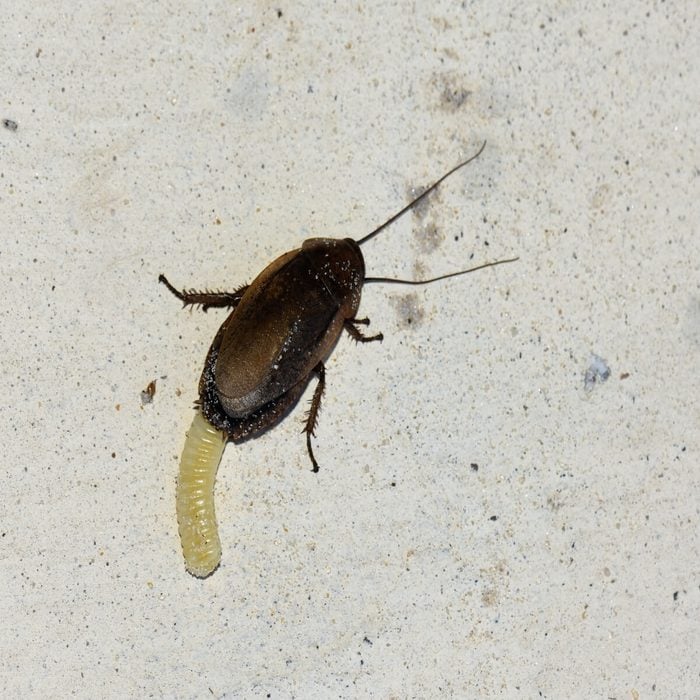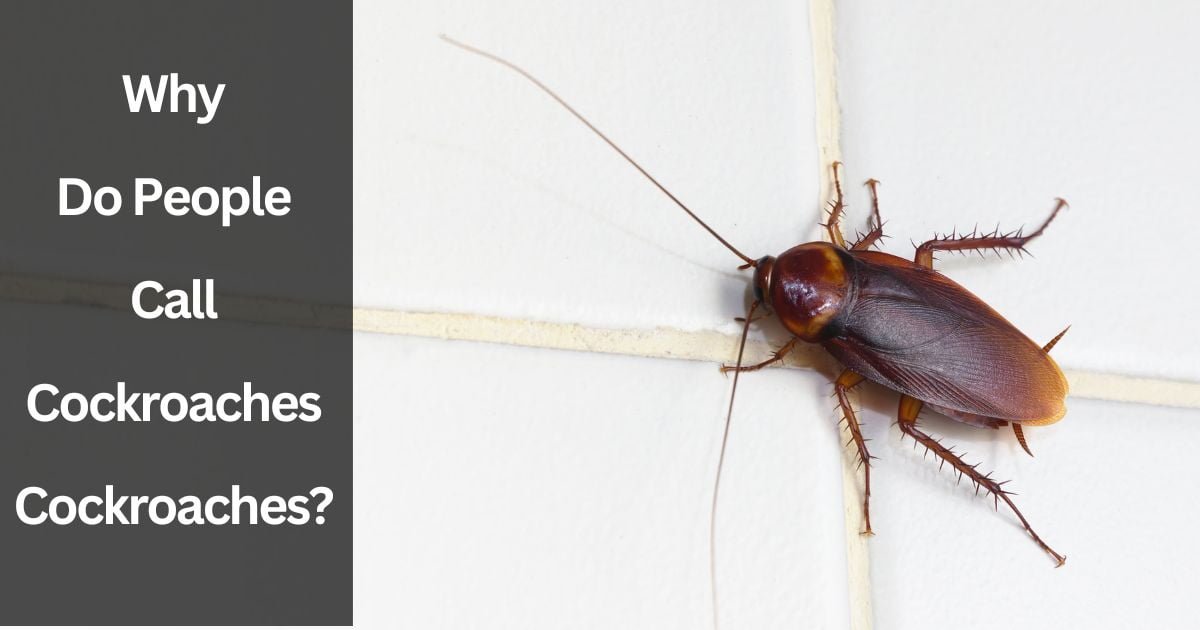People call cockroaches “cockroaches” due to the anglicized version of the Spanish word “cucaracha”. This term evolved over time, adapting to the English language.
Cockroaches are among the most resilient and adaptable creatures on the planet, with their lineage tracing back millions of years. Belonging to the order Blattodea, these insects are known for their flattened bodies, rapid movements, and ability to thrive in various environments.
Often unwelcome guests in homes and businesses, cockroaches have gained notoriety for their persistence and the challenge they pose to control and exterminate. The common name ‘cockroach’ is an etymological twist from its Spanish roots, reflecting the insect’s pernicious presence across continents and cultures. As a pest, the cockroach has cemented itself in the human experience, leading its name to be universally recognized and often used in less than flattering contexts. Despite their negative reputation, cockroaches play a significant role in ecological cycles, often acting as decomposers in natural habitats.
Etymological Journey Of The Name
Ever wonder why we call those resilient, nocturnal critters “cockroaches”? Let’s scuttle through history to uncover the roots of this name.
Spanish Roots: From Cucaracha to CockroachThe name “cockroach” didn’t start in English. This insect was first named in Spain. Spaniards called it cucaracha.
Over time, English speakers heard “cucaracha” and changed it. They ended up with cockroach.
Latin Beginnings: The Word ‘blatta’
Before “cucaracha,” there was Latin. Romans used blatta to name the bug.
This ancient word blatta means “an insect that shines the light.” It’s not hard to see why; cockroaches’ shells can be shiny.

Credit: www.controlsolutionsinc.com
Cockroaches In The Animal Kingdom
Welcome to the curious world of “Cockroaches in the Animal Kingdom”.
Many of us squirm at the mention of cockroaches.
Yet, these creatures hold a significant place in the biodiversity of our planet.
Classification: Insect Order Blattodea
Cockroaches belong to the Blattodea order.
- Fascinating insects dating back millions of years
- Over 4,600 species mark their existence globally
- Highly adaptable creatures thriving in various environments
Cockroaches share this order with another surprising insect: termites.
Cousin Termites: An Evolutionary Twist
Unlocking earth’s past, we find an evolutionary twist.
Termites, once classified separately, are now cockroach cousins.
Here’s a quick glance at their relationship:
| Cockroaches | Termites |
|---|---|
| Solitary or in small groups | Live in large colonies |
| Do not have worker or soldier castes | Distinguished castes such as workers, soldiers, and reproductives |
| Nocturnal scavengers | Consume wood, causing damage |
| Omnivores | Primarily consume cellulose |
Next time you see a cockroach, remember its deep-seated role in our ecosystem.
Global Nomenclatures
Global Nomenclatures Introduction
Cockroaches have crawled their way into nearly every corner of our world. These hardy insects are known for their resilience and for sparking strong reactions in people. But have you ever wondered why we call them “cockroaches”? Names are cultural fingerprints, and the names given to cockroaches are as diverse as the cultures themselves. Let’s delve into the fascinating world of cockroach nomenclature across the globe.
Regional Variations in the United States
Regional Variations In The United States
Across the vast landscapes of the United States, cockroaches earn different titles. In some southern regions, they’re boldly referred to as “Palmetto bugs”. Meanwhile, folks in other areas might grimace at the mention of “waterbugs”, yet another alias for these unwelcome guests.
- Palmetto bug: A Southern euphemism for certain roach types.
- Waterbug: Used in various U.S. regions, though technically incorrect.
International Names for Cockroaches
International Names For Cockroaches
Cockroaches bear different names around the world. Their identity changes with language, reflecting local customs and history.
| Country | Name for Cockroaches |
|---|---|
| Spain | Cucaracha |
| Germany | Schabe |
| France | Cafard |
| Italy | Scarafaggio |
| Japan | Gokiburi |
| Russia | Tarakany |
Cockroach Names Based On Appearance
Cockroaches are one of the most recognized and unwelcome house guests. While most of us are familiar with the term cockroach, these pesky insects go by many different names depending on their size, shape, and habitat. These names tell a story about how people perceive these resilient insects based on their distinctive appearances.
Descriptive Terms: ‘waterbug’ And Others
One common name for certain types of cockroaches is ‘Waterbug’. This name comes from the cockroach’s tendency to dwell in damp locations. However, true water bugs are aquatic and unrelated to cockroaches. Other descriptive terms include:
- Giant cockroach – refers to their sometimes large size.
- Sewer roach – implies their habitat in unsanitary areas.
- Brown bug – comes from the brown color of many cockroach species.
The Misnomer: ‘palmetto Bug’ Explained
Particularly in the southern United States, you may hear cockroaches referred to as ‘Palmetto Bugs’. The name suggests they have a connection to the palmetto trees often found in these regions. It is, in fact, a misnomer, as the insects are not true bugs, but cockroaches seeking warm and moist environments which these trees provide. More so, ‘Palmetto Bug’ is a term applied to multiple species of cockroaches and even some beetles. This softens the negative connotation associated with the word cockroach.
Cultural References And Connotations
Cockroaches have skittered their way not only through our homes but into the cultural fabric of society. From ancient artifacts to modern-day expressions, these resilient critters carry a trove of references and connotations. Their name evokes strong imagery and emotions, often tailored by regional dialects and social contexts.
Slang Usage: Shortening To ‘roach’
The word ‘cockroach’ sometimes gets a quick trim in everyday language. People often just say ‘roach’. This shorthand slips easily into conversations, music, and even literature. It’s a catchy term that sticks, much like the insects themselves.
- Music: Lyrics in songs from rock to rap may use ‘roach’ to symbolize resilience or unwanted presence.
- Pop culture: The term ‘roach’ pops up in movies and TV shows, usually to highlight a dirty or tough character.
Derogatory Use: Insult Or Slur?
Cockroaches, due to their survival skills and association with filth, often serve as fodder for insults. Calling someone a ‘cockroach’ is a powerful slur. It suggests the person is deemed undesirable or difficult to get rid of.
| Context | Meaning as Insult |
|---|---|
| Personal attacks | Implies a person is sneaky or untrustworthy |
| Social commentary | Used to describe someone as a social pariah |
In some cultures, the insult can even imply that someone is hard to eliminate from a particular situation, much like the insect’s famed survivability.

Credit: www.nbcnews.com
Pest Or Pet: Cockroaches In Human Society
It’s a tale as old as time: the eternal battle between humans and cockroaches. These resilient creatures have carved out a complex relationship with us, becoming one of the most notorious household pests, yet also contributing to science and education in surprising ways.
Role As Household Pests
Cockroaches are unwelcome visitors in many homes. They are known for their capacity to spread germs and cause allergies. These insects can eat almost anything and love warm, humid environments. This adaptability makes them hardy survivors, but troublesome tenants.
Here are a few reasons they’re considered pests:
- Health risks: Cockroaches can carry pathogens that may lead to illness.
- Property damage: These bugs can gnaw on paper and fabric, harming personal items.
- Reproduction: A single female can produce thousands of offspring each year.
Efforts to control these pests usually involve cleanliness, sealing entry points, and sometimes professional extermination. But, there’s more to these insects than meets the eye.
Cockroaches In Science And Education
Cockroaches play a critical role in both science and education. Despite their reputation, these insects are subjects of fascination in laboratories worldwide. They offer insights into neuroscience, robotics, and even space travel.
Scientific exploits include:
- Studying their nerve cells teaches us about human biology.
- Robots designed with cockroach-inspired motion.
- NASA sent these bugs to space to observe life cycle changes in zero gravity.
In classrooms, cockroaches often serve as hands-on learning tools. Students can observe life cycle stages, behavior, and anatomy up close. By studying these creatures, youngsters can overcome fears and ignite a passion for biology.
From pests hiding under our fridges to stars of research labs, cockroaches occupy a unique place in our world. They remind us that even the smallest beings can have a vast impact on our lives and provide invaluable lessons about the resilience of life.
Entomological Curiosities
Entomological Curiosities unveil the lesser-known wonders of the insect world. Cockroaches, often met with disgust, have stories worth exploring. Why do we call these creatures cockroaches? Let’s delve into their indestructible reputation and fascinating features.
Indestructible Reputation Of Roaches
Cockroaches have garnered a reputation for their survival skills. People around the world recognize them as hardy insects, able to endure what many other species cannot. This perception is due to their remarkable adaptability and resilience.
- Survival in various environments
- Resistance to radiation
- Long lifespan without food or water
Fascinating Features: Cockroach Facts
Beyond their tenacity, cockroaches possess features that both fascinate and horrify. As insects that spark curiosity, these facts highlight their extraordinary nature.
| Feature | Description |
|---|---|
| Antennae | Extraordinarily sensitive to touch and smell |
| Exoskeleton | Provides protection and conserves water |
| Reproduction | Efficient, producing many offspring |
Furthermore, cockroaches can hold their breath for up to 40 minutes and can even live without a head for a week!
The ‘cock’ In Cockroach
Ever wonder why we call these creepy crawlies cockroaches? The name may sound odd. It’s a funny mix of words. Let’s dig into its roots!
Word Evolution or Mere Coincidence?Word Evolution Or Mere Coincidence?
Cockroaches have a name that has puzzled many. The ‘cock’ part isn’t about birds. It’s all about history!
- The name started in Spain.
- It was cucaracha back then.
- Cucaracha changed to what we say now over time.
Old texts and folklore show us this change. It’s like a word journey.
Modern Language Influence on the NameModern Language Influence On The Name
Language keeps changing. So do names. That’s true for cockroaches too.
English speakers heard cucaracha. They made it easier to say. They made a new word – cockroach.
| Spanish | Evolved English |
|---|---|
| cucaracha | cockroach |
Today, languages from all over the world say it their way. But the English cockroach sticks out.
It’s simple. Words change with time. That’s what happened with cockroaches.

Credit: www.familyhandyman.com
Frequently Asked Questions
Why Do They Call Cockroaches Cockroaches?
The name “cockroach” comes from the Spanish word “cucaracha,” transformed by English speakers.
What Do Americans Call Cockroaches?
Americans typically call cockroaches “roaches” for short. Some regions also use “palmetto bugs” or “waterbugs” as colloquial terms.
What Do Southerners Call Roaches?
Southerners often refer to cockroaches as “palmetto bugs”.
Conclusion
Exploring the curious etymology of the word “cockroach” has revealed its deep historical roots. From Spanish origins to current day, this resilient insect’s name has fascinated and sometimes unsettled us. Remember, the story behind the term is as robust as the critters themselves.
Keep this linguistic journey in mind whenever you encounter these persistent pests. Discovering the ‘why’ in their name grants us a small, intriguing peek into language’s evolving nature.
Related posts:

I’m MD Tanvir, and I bring years of expertise gained from working closely with pest control companies to the forefront. My journey in the industry has inspired me to launch Bug Battler, a platform aimed at equipping people with the know-how to combat pests autonomously. Through Bug Battler, I aim to empower individuals with practical insights to tackle pest infestations effectively.

